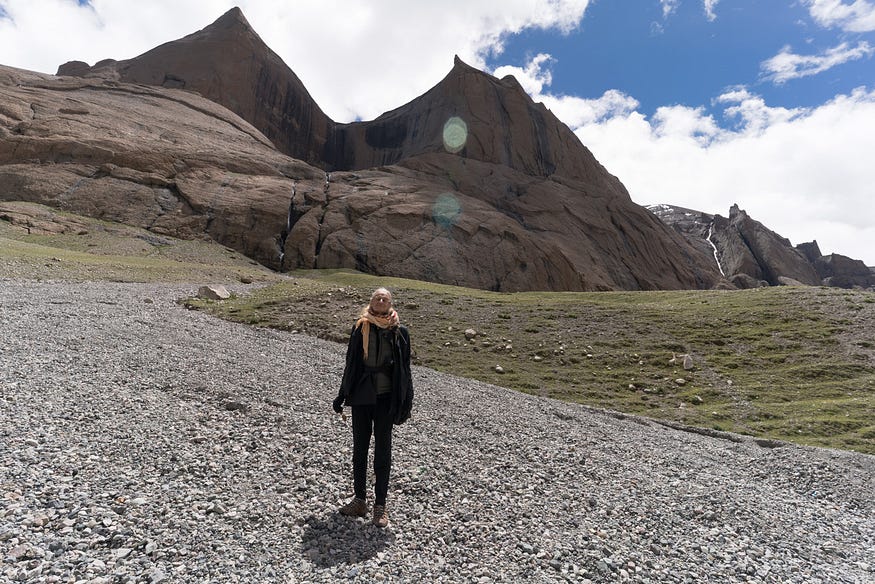You are THE Beauty of Reality | Mark Whitwell
It is self …
You ARE nature. If you look at a bird or a tree or a flower and see the beauty, this beauty is no different than what you ARE. You are the beauty. But we try to capture beauty with our mind. We try to “experience” the beauty; or maybe hold on to it, savor it and try to duplicate the experience. But the mind will never capture beauty. It cannot even capture experience. It is too slow. You are beauty so you don’t have to capture it. So! Relax and stop looking. The power of the cosmos is arising as you, as utter beauty, intelligence and function, and all things. Enjoy mother nature directly, in you as you.
Yoga is not a technique for a future result; Yoga is not a method; Yoga is not seeking. It is participation only in what is already true. Participation in the Given reality. As soon as it becomes a method of “becoming” it is not Yoga.
Even being “in nature” or trying to capture beauty is futile.
Yoga cannot be defined as a method, a style or a type.
“People often ask me if I teach āsanas, and when I answer “yes” they say: “Oh, then you are a haṭha yogi!” If I am talking about the Yoga Sūtra they say: “Oh, you are a rāja yogi!” And if I say I recite the Vedas the comment is: “Oh, so you are a mantra yogi!” If I simply say that I practice yoga, they do not know what to make of me. Many people want to give everything and everyone a label. Unfortunately, these classifications have become much too important and give the impression that there are fundamental differences between the various forms of yoga. But really they are all dealing with the same thing, and are only looking at them from different perspectives. If we really follow one direction in yoga as far as we can go, then it will lead us along all paths of yoga.” — TKV Desikachar, The Heart of Yoga (1995).
Yoga needs to be adapted for all individuals and the individual unique needs of each person according to body type, age, health, life style, cultural background and capacity. Krishnamacharya considered it a fault of Western mind to distinguish Yogas as being different or distinct from each other. He would say they must be practiced in synchronicity. according to an individual’s constitution and capacity but any one Yoga should not be left out of the wholistic system. All the Yogas support each other.
“There is no Jnana Yoga (understanding) without Bhakti. There is no Bhakti without Hatha Yoga (union of opposites) there is no Hatha without Karma Yoga (service)” — T. Krishnamacharya.
Without any one Yoga all the other Yogas are disempowered and create the obstructive thought structures of seeking. All Yoga is participation only in the Given reality.
Pain is the unavoidable motive for Yoga practice.
To be prepared to acknowledge pain brings awesome results. As with Gautama Buddha, usually only in times of suffering are we forced to stop and reflect on the conditions of our life. Painful experiences stop you in your tracks, tell you to pay attention, stand up, and evaluate your situation, and take the action required to get your life right. When life is moving in the direction that you want it to, you feel little impetus for reflection and, consequently, little motivation to move deeper into yourself. So pain is a gift. Yet we tend to view pain as something that needs to be opposed, fought against, and overcome. In the attempt to obliterate it, we become blind to the positive messages it conveys and the transformation that is possible through a personal experience of pain.
All you need to be a fully fledged yogi or yogini is your own body, your own breath and your own relationships. You do not need someone else’s culture or a sentimental attachment to an ancient culture.
There is a paradox in any helpful teaching. It is: you do not need any help. The extreme intelligence and infinity of life is fully established in you, as you. Any genuine friend [teacher] will help you to understand this and make the teaching function redundant. Spiritual transmission occurs only in sincere friendship. The teacher is an equal friend, nothing more and nothing less.
Originally published here - Mark Whitwell.
Know more about Mark Whitwell and his journey with Yoga


Comments
Post a Comment